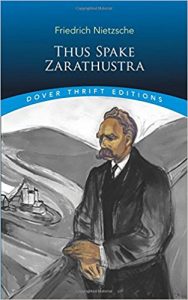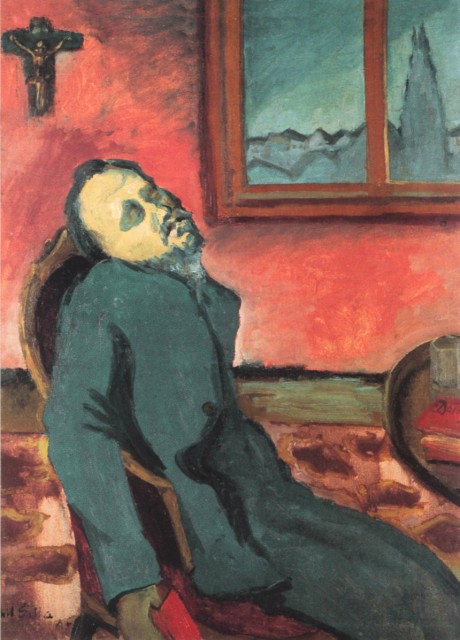
Nietzsche is perhaps the best example of crossing over literary methodology and philosophical engagement. Though he isn’t the first to do so, certainly Plato was a master at using story to display philosophical concepts, Nietzsche stands as an example of what philosophical prose can do. He became wildly popular, especially with this book, and solidified his place in Continental Philosophy forever. He is absolutely inescapable when talking about Existentialism. His insights and historical presence carry through to almost all authors and philosophers we will be studying on heretofore.
- Please read the “TSZ Notes (introduction), it gives a brief and wonderfully concise historical account of Nietzsche’s, often disputed, life.
- I would recommend reading the prologue because he brings up concepts essential for the rest of Zarathustra sermons.
- Then, read some/or all of the other pieces and choose one to focus in on. Be prepared to give a brief explanation of ideas presented within. Be aware that Nietzsche is often purposefully contradictory, ironic, sarcastic, and underhandedly humorous. Therefore, I would recommend going to outside sources to establish what might be going.
- Please bring at least one well thought out discussion question to help us work through the texts together.
TSZ Despisers of the Body
TSZ Joys and Passion
TSZ Preachers of Death
TSZ Self-Surpassing
TSZ The Thousand and One Goals
TSZ The Three Metamorphoses
Also, Melissa found this great article connecting Dostoevsky to Nietzsche. She will be speaking about it briefly. More material for papers and discussion.
(Optional Reading): SToeber Dostoevsky’s devil
Thanks for your continued participation!
